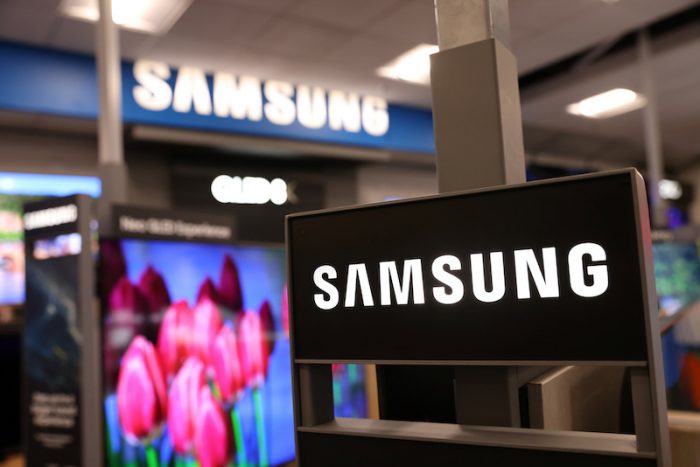Chinese tech giants like Huawei and Baidu have been frantically stockpiling high-end Samsung chips in a bid to beat the deadline on looming US curbs.
Sources claim a large number of Chinese startups have also been amassing stocks of high bandwidth memory (HBM) semiconductors made by the South Korean firm.
The companies are said to have ramped up their buying of the artificial intelligence (AI) capable semiconductors since early this year, helping China account for about 30% of Samsung’s HBM chip revenue in the first half of 2024.
The moves show how China is gearing up to keep its technology ambitions on track amid rising trade tensions with the US and other western nations. They also show how the tensions are impacting the global semiconductor supply chain.
Also on AF: China’s East Bakes as Record Heatwave Sparks Power Crunch Fears
US authorities are planning to unveil an export control package this month that will impose new restrictions on shipments for China’s semiconductor industry.
Those sources also said the package is expected to lay out parameters for restricting high bandwidth memory chip access.
The US Department of Commerce declined to comment but had said in a statement last week that it is continually assessing the evolving threat environment and updating export controls “to protect US national security and safeguard our technological ecosystem.”
HBM chips are crucial components in developing advanced processors such as Nvidia’s graphics processing units that can be used for generative AI work.
There are only three major chipmakers producing HBM chips – SK Hynix and Samsung from South Korea, and US-based Micron Technology.
Chinese chip demand has been largely focused on the HBM2E model, which is two generations behind the most advanced version HBM3E, said the sources who are familiar with China’s interest in HBM. The global AI boom has led to a tightness in supply of the advanced model.
“Given that its domestic technology development is not yet fully mature, China’s demand for Samsung’s HBM has become exceptionally high, as other manufacturers’ capacities are already fully booked by American AI companies,” said Nori Chiou, investment director at Singapore-based White Oak Capital Partners.
Micron, Hynix Adapt to Curbs
Businesses ranging from satellite manufacturers to tech firms such as Tencent have reportedly been buying them, the sources said. One of the sources said chip designing startup Haawking had also recently ordered HBM chips from Samsung.
Huawei, meanwhile, has been using Samsung HBM2E semiconductors to make its advanced Ascend AI chip, according to one of the sources.
Chinese firms have made some headway in producing HBM, with Huawei and memory chipmaker CXMT focusing on developing HBM2 chips, which are three generations behind the HBM3E model. But those efforts could be impacted by the new US rule.
Restrictions on HBM sales to China could have a bigger impact on Samsung than its key rivals which rely less on the China market, said the sources who were briefed on the sales.
Micron has refrained from selling its HBM products to China since last year, while SK Hynix, whose major HBM customers include Nvidia, focuses more on advanced HBM chip production, they said.
SK Hynix said earlier this year it is adjusting production to expand HBM3E output and its HBM chips were sold out for this year and almost sold out for 2025.
- Reuters with additional editing by Sean O’Meara
Read more:
Samsung Chip Output At Risk as Workers Announce All-Out Strike
Samsung Posts 15-Fold Profit Surge on AI Chips Frenzy
Samsung Profit Soars, Says AI Spurring Strong Chip Demand
Samsung Set For 80% Profit Dive as Chip Glut Bites: Analysts























